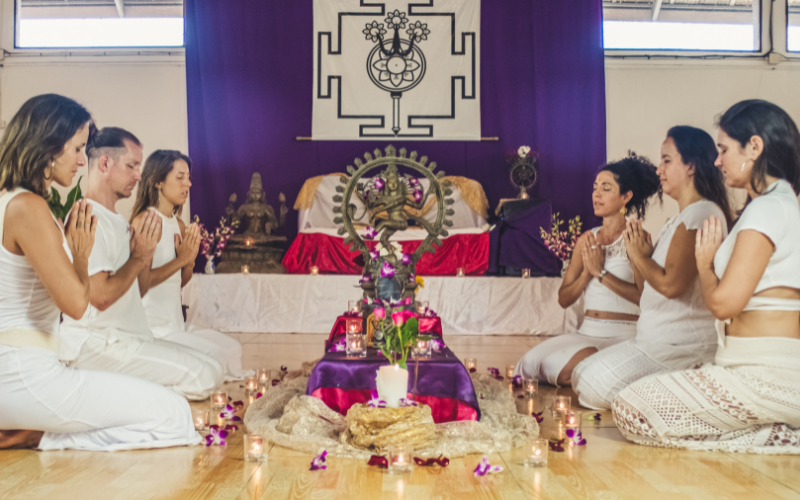Agama Yoga School has often been labelled a cult. We understand why. Many arrive at Agama expecting to find what they know of as Yoga, and are met with statues of Hindu deities like Ganesha and Kali, strange looking symbols like the Shambhala yantra, and long-time students bowing in reverence at an altar.
It looks really weird from the outside, when you don’t understand the symbolism and purpose, and when you haven’t yet opened your mind to embrace different forms of spiritual practice.
In a recent Satsang, the founder of Agama, known endearingly as Swamiji, addressed this misperception about Agama, as a way to comfort newcomers to the school and assure them that Agama is not a cult in any way. He shared with us that he himself was highly skeptical of many aspects of spirituality in the early days and had he walked into one of our elaborate tantric rituals back then he might have been equally as disturbed as those who discover Agama in this way today.
If your first encounter with us is the Goddess Festival or Maha Shivaratri, where we stay awake all night singing mantras to tantric deities, praying, meditating, pouring honey and yoghurt over a Shiva Lingam statue and gazing for far too long into one another’s eyes, we will not be surprised to hear that your impression alikens Agama to a cult.
No one is ever required to worship statues or participate in any rituals at Agama. We offer many different kinds of practices and everyone chooses what fits their temperament. You can come for Hatha Yoga classes and never bow down to any statue if that is not your cup of tea. Maybe you’re interested in Parapsychology, but the idea of a god named Shiva totally puts you off. No problem. Everyone is welcome to discover what works for them.
That said, we’ve seen that many who arrive with much skepticism tend to warm to the idea of making offerings to deities and fall in love with worshipping the divine at every opportunity.
Watch the video for a beautiful presentation on Deity Yoga. You might find that it gives you a new perspective on deities and devotion and a deeper understanding of spirituality.


